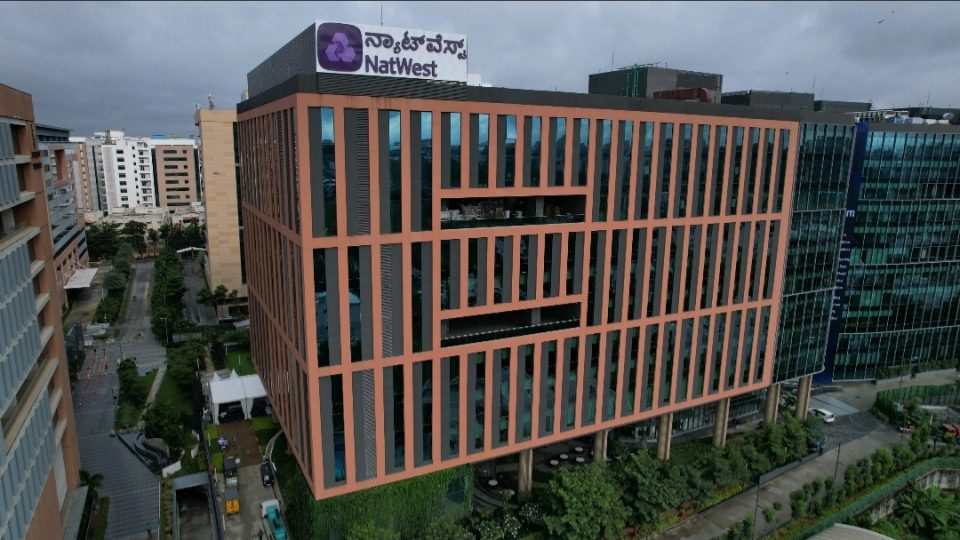NatWest Group’s Strategic Expansion in Bengaluru: A New Chapter in Global Banking Innovation
In today’s rapidly evolving financial landscape, traditional banking institutions are undergoing remarkable transformations. Therefore, NatWest Group’s recent announcement of its new Bengaluru office represents a significant milestone in global banking. Moreover, this expansion demonstrates the bank’s commitment to India’s technology ecosystem. Subsequently, the move reinforces Bengaluru as a critical hub for global financial innovation.
The Strategic Significance of the Bengaluru Expansion
NatWest Group’s latest office at Taurus 4, Bagmane Constellation Business Park, marks a pivotal moment in the bank’s Indian journey. Consequently, this state-of-the-art facility spans over 370,000 square feet across 11 floors. Furthermore, the new office provides three times the capacity of the previous facility. Additionally, this expansion supports NatWest’s ambitious plan to grow its Bengaluru workforce to 6,000 employees by 2026.
The strategic importance becomes evident when considering NatWest’s current Indian operations. Currently, India hosts the bank’s second-largest employee base outside the UK. Moreover, approximately 30% of NatWest’s global workforce operates from India. Subsequently, half of the bank’s technology and data capabilities originate from Indian operations. Therefore, this expansion represents more than physical growth—it signifies India’s central role in NatWest’s global strategy.
Technology Leadership and Innovation Hub
The new Bengaluru office will serve as a cutting-edge technology and innovation center. Specifically, the facility will focus on AI, data science, and engineering development. Furthermore, the global Head of AI Platforms is based in Bengaluru. Consequently, this positioning demonstrates the city’s importance in NatWest’s technological advancement.
NatWest’s technology transformation initiatives showcase remarkable progress in customer experience enhancement. For instance, the bank’s AI digital assistant, Cora, handled 10.8 million customer conversations in 2023. Moreover, nearly half of these conversations required no human intervention. Subsequently, NatWest launched Cora+, incorporating generative AI capabilities. Additionally, this upgraded system delivers 150% improved customer satisfaction. Therefore, these developments illustrate how India-based teams drive global innovation.
The Evolution of Global Capability Centers in Banking
NatWest’s expansion aligns with broader trends in the global capability center (GCC) landscape. Traditionally, GCCs functioned as cost-optimization centers. However, they have evolved into strategic innovation hubs. Consequently, banking GCCs now drive digital transformation across multiple functions. Furthermore, they spearhead AI and machine learning implementations. Additionally, these centers enhance cybersecurity delivery and develop advanced competencies.
The transformation is particularly evident in Indian banking GCCs. Specifically, they contribute significantly to artificial intelligence revolution in financial services. Moreover, these centers bridge the gap between AI potential and practical implementation. Subsequently, they provide necessary infrastructure, talent, and support for technological advancement. Therefore, GCCs have become essential for digital transformation and customer engagement.
Customer Experience Transformation Through Technology
Digital transformation in banking has fundamentally altered customer expectations and service delivery. Consequently, customers now demand personalized, efficient, and seamless banking experiences. Furthermore, automation, personalization, interaction, and ambient intelligence drive modern customer satisfaction. Additionally, these technological advancements enhance convenience, transparency, security, and perceived value.
NatWest’s approach to customer experience exemplifies this transformation. For example, the bank’s partnership with IBM resulted in Marge, an AI-powered mortgage support platform. Subsequently, this implementation achieved 20% improvement in customer Net Promoter Score. Moreover, call duration decreased by 10%. Additionally, the bank’s collaboration with Accenture and AWS aims to revolutionize customer service through enhanced data analytics. Therefore, these initiatives demonstrate how technology drives superior customer experiences.
The Role of Generative AI in Modern Banking
Generative AI represents a paradigm shift in financial services automation and customer interaction. Specifically, GenAI applications transform multiple banking functions including customer onboarding, document processing, and regulatory compliance. Furthermore, these technologies enable real-time verification and predictive analytics. Additionally, advanced GenAI systems can automate complex banking processes seamlessly.
The impact extends beyond simple automation. Moreover, GenAI revolutionizes customer service by providing intelligent, conversational experiences. Subsequently, these systems understand natural language nuances and deliver personalized responses. Furthermore, they can handle complex financial advice while maintaining human-like interactions. Therefore, GenAI enables banks to deliver superior service quality while reducing operational costs.

Sustainable and Inclusive Workplace Design
NatWest’s new Bengaluru facility exemplifies modern workplace design principles. Specifically, the building achieves LEED certification targeting gold status. Furthermore, the design prioritizes employee wellbeing with dedicated spaces and facilities. Additionally, the workplace promotes collaboration, innovation, and flexibility. Moreover, this approach aligns with contemporary talent retention and attraction strategies.
The sustainable design approach reflects broader environmental consciousness in corporate real estate. Subsequently, LEED-certified buildings demonstrate commitment to environmental responsibility. Furthermore, such facilities often result in improved employee satisfaction and productivity. Additionally, sustainable workplaces support broader corporate social responsibility objectives. Therefore, NatWest’s facility design balances operational efficiency with environmental stewardship.
Regulatory Compliance and Risk Management Evolution
The expansion occurs within an increasingly complex regulatory environment. Consequently, banking institutions must navigate evolving compliance requirements while maintaining operational efficiency. Furthermore, GCCs play crucial roles in regulatory reporting, compliance management, and risk analysis. Additionally, AI-driven solutions help reduce compliance costs and improve accuracy.
NatWest’s India operations significantly contribute to the bank’s global compliance capabilities. Specifically, teams handle anti-money laundering and know-your-customer functions. Moreover, they support corporate banking and risk advisory portfolios. Subsequently, these capabilities enable the bank to maintain regulatory compliance across multiple jurisdictions. Therefore, the expanded facility will further strengthen these critical functions.
Economic Impact and Industry Implications
The expansion generates substantial economic benefits for Bengaluru’s technology ecosystem. Specifically, NatWest plans to hire 4,000 additional employees over the next two years. Furthermore, this growth creates opportunities for local technology talent. Additionally, the expansion attracts other multinational corporations to establish similar operations. Moreover, it reinforces Bengaluru’s position as India’s Silicon Valley.
The broader industry implications are equally significant. Subsequently, NatWest’s investment demonstrates confidence in India’s technology capabilities. Furthermore, it validates the GCC model for global financial institutions. Additionally, the expansion may influence other banks to increase their Indian operations. Therefore, this move could catalyze further growth in India’s financial services technology sector.
Future Outlook and Strategic Positioning
Looking ahead, NatWest’s Bengaluru expansion positions the bank advantageously for future growth. Specifically, the facility enables the bank to leverage India’s deep technology talent pool. Furthermore, it provides scalability for future workforce expansion. Additionally, the modern infrastructure supports emerging technologies like quantum computing and advanced AI systems.
The strategic positioning extends beyond immediate operational benefits. Moreover, the expansion strengthens NatWest’s competitive position in the global banking landscape. Subsequently, it enables faster innovation cycles and more agile product development. Furthermore, the facility supports the bank’s digital transformation objectives across all business lines. Therefore, this investment represents a long-term commitment to technological leadership.
Challenges and Considerations
Despite the numerous benefits, the expansion presents certain challenges. Specifically, talent acquisition in Bengaluru’s competitive technology market requires strategic approaches. Furthermore, maintaining cultural alignment across global operations demands careful management. Additionally, integrating new capabilities with existing systems requires comprehensive planning.
However, NatWest’s extensive experience in Indian operations provides confidence for successful expansion. Moreover, the bank’s established presence in Chennai and Gurugram offers valuable insights. Subsequently, proven methodologies can be adapted for the new Bengaluru facility. Therefore, while challenges exist, NatWest appears well-positioned to address them effectively.
NatWest Group’s new Bengaluru office represents more than a simple expansion—it symbolizes the evolution of global banking toward technology-driven, customer-centric operations. Consequently, this investment demonstrates the critical importance of India’s technology ecosystem in global financial services. Furthermore, it illustrates how traditional banks can successfully transform through strategic technology investments and talent development.
The facility’s focus on AI, data science, and engineering positions NatWest at the forefront of banking innovation. Moreover, the sustainable, inclusive workplace design reflects modern corporate values and employee expectations. Subsequently, this expansion will likely serve as a model for other financial institutions considering similar investments in India’s technology landscape.
As the banking industry continues evolving, NatWest’s Bengaluru expansion demonstrates the potential for traditional institutions to embrace transformation while maintaining their core values and customer focus. Therefore, this strategic move not only benefits NatWest but also contributes to India’s growing reputation as a global center for financial technology innovation.

